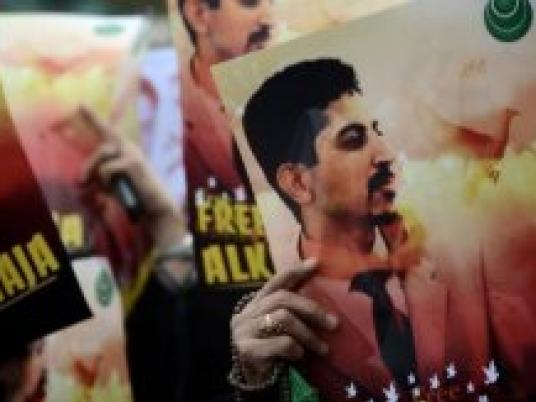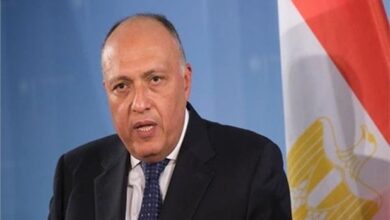
Jailed Bahraini activist Abdulhadi al-Khawaja ended a more than three-month-long hunger strike on Monday after what he described as his success in drawing attention to the issue of imprisoned activists, his wife and lawyer said.
Bahrain, a US ally and home to the US Navy's Fifth Fleet, has been in turmoil since pro-democracy protests led by its majority Shia erupted last year after revolts in Egypt and Tunisia.
Khawaja, who is also a Danish citizen, was a leading figure in the uprising and has become a focal point of almost daily anti-government protests in the past months as his health deteriorated.
Bahrain's Shia complain they have long been marginalized in political and economic life, which the government denies. But there has been no progress on the main opposition demand for a parliament with full powers to legislate and form governments.
The country's rulers have rejected opposition calls for an elected government and protests and clashes with police continue. Authorities have dubbed the opposition Iranian lackeys because most of them are Shia, like most people in Iran.
A vocal rights activist, Khawaja received a life term for charges including attempting to topple the monarchy. An appeals court ordered a retrial last month at a civilian court. He went on hunger strike on 9 February.
"He has stopped his hunger strike," Khadija Almousawi, Khawaja's wife, told Reuters by telephone from Manama, after she received a call from Khawaja on Monday evening.
Khawaja decided to end his hunger strike "after succeeding in shedding light on the case of the detainees in Bahraini prisons," a statement carried by Bahrain Youth Society for Human Rights (BYSHR) quoted Khawaja as saying.
"Despite not succeeding until now to achieve the direct demand of his hunger strike which is to be freed … he has decided to stop his hunger and agree on a medical program to return to normal eating conditions," the statement said.
Khawaja, who had said he would fast to his death if he were not freed, said in the statement on Monday that he had been force-fed by Bahraini authorities since 23 April.
Authorities had previously denied the accusations saying he had agreed to receive medical treatment.
The case of Khawaja, one of 13 men jailed for leading last year's uprising, has inflamed the street over the past months particularly during Bahrain's Formula One Grand Prix in April.
Clashes continue on an almost daily basis in Shia neighborhoods between youths and riot police, and there have been a number of marches in solidarity with Khawaja.
Western governments and the United Nations secretary-general all called for a quick resolution of his case. International rights groups said Khawaja and the other men are prisoners of conscience and should be released.
To release Khawaja would be a climb-down for a government that has failed to quell a movement led by Shia seeking democratic reforms that would reduce the Sunni dynasty's power.
But his death would have been a disaster, creating a "martyr" who would galvanize the street and risk spoiling government efforts to persuade Western allies that reform at the pace of its choosing is working.
Health Concerns, Torture Reports
Last Tuesday, Khawaja was brought to court in a wheelchair for the retrial of the 13 men imprisoned over last year's protests.
A military court convicted them last year of using violence in the protests, but Bahrain's highest appeals court ruled last month that they should be retried in a civilian court.
Lawyer Mohammed al-Jishi said there are still concerns about Khawaja's health when he starts eating again and he will be monitored closely by a doctor. A new hearing is set for Tuesday, but Khawaja will not be able to attend it, Jishi said.
In the BYSHR statement Khawaja said he testified about his mistreatment, including torture and beatings, since his arrest on 9 April during last week's hearing.
The men on trial are believed to be among hundreds cited in a report prepared by an international rights investigation in November as having suffered torture in detention, often to extract confessions.
Earlier on Monday, prominent Bahraini opposition activist Nabeel Rajab, who was accused of organizing illegal protests and insulting authorities in the Gulf Arab state, was freed from jail after being granted bail.




